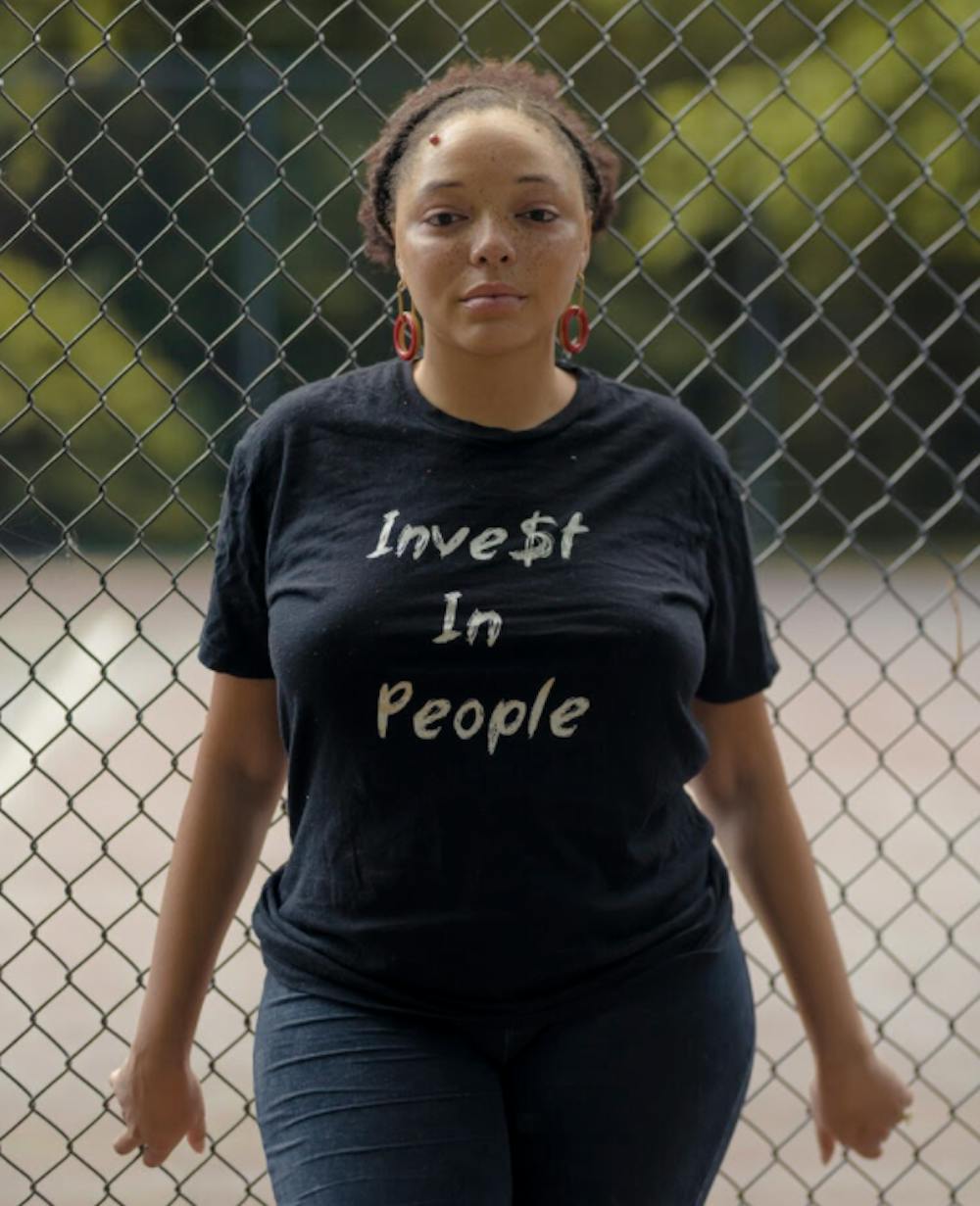By Jenna Hart
Correspondent
Strategist, writer and activist Brea Baker led a Q&A event hosted by PRISM on Thursday, Feb. 11. The focus of the event was to hold a conversation on how spaces like PRISM, the College’s gender and sexuality alliance, can improve their allyship with the Black community.
Baker was an organizer for the 2018 National School Walkout after the Parkland shooting and the youngest female organizer for the 2017 Women's March. Since those major protests, she has worked on a plethora of electoral advocacy campaigns and wrote for Elle Magazine and Harper's Bazaar.

As a cisgender Black queer woman, Baker discussed the intersections between her own identities of race, gender and sexuality, while also sharing her experience of coming to understand intersectionality beyond her own communities and how she was able to better herself as an ally.
“Just because I have a marginalized identity does not mean that I can speak for other people, or for even everyone in my community,” Baker said. “I had to have a deep internal process of just seeing where I was not as good of an activist as I thought I was, and that’s an important conversation to have with yourself. I think we get a little used to patting ourselves on the back and feeling a bit above other people.”
She explained that a problem with novel activism is it sees the world through a “good vs. evil” lens, and that highlighting how bad people can be with the incentive of getting people to come to “the good side” is problematic and does not work. She explained that looking at situations on a “silence vs. volume” binary allows us to recognize that there are bad people who just happen to be loud, and good people who happen to be quiet.
Baker also stated that our activism cannot be loud only when oppression is at the forefront of general thought. “Thinking ‘I have to be a super activist while Trump is in office, but the moment that we vote him out I can breathe again’ is such a toxic way of looking at things,” she said. “And it’s definitely not an intersectional way of looking at things.”
The birth of a superiority complex regarding one’s “wokeness” with the foundations of knowing jargon or reading literature is also the birth of a form of complacency. Baker emphasized how having a marginalized identity does not permit one to speak for everyone with a marginalized identity, even within their own community.
“You have to be willing to say, ‘I don’t know it all’ and if I think I do, that’s actually a sign that I should step away from this table because I’m not willing to bring the right people in to challenge me when I’m not right or to challenge me when I am missing out on a community,” she said.
“When someone is talking about their specific racial experience, hear that without being like ‘Oh my god yes, this is exactly what I felt,’” she said. “It’s not the same, and it doesn’t mean yours was not a hard experience, but they are just not the same. So don’t be that person who is conflating or assuming you know what every other marginalized identity experiences because you have a marginalized identity. Look inwardly and ask, ‘What can I always be doing to be a better accomplice to the Black community?’”
Improving upon social negligence to Black individuals also includes actively making sure people of color are being represented in groups such as college campuses or in organizations like PRISM. Baker acknowledged how a lack of racial diversity in LGBTQ+ spaces can go unchecked, but encourages us to ask ourselves why we may not see Black and brown queer or transgender people being represented in certain places.
“It’s not that there aren’t Black queer trans people who need this space that you are providing, who are a part of this community. But if they’re not here, it’s because something’s not being done to make them feel safe,” she said.
She also warns us of attaching ourselves to the activist label so deeply that we lose sight of what it actually means in practice.
“I can label myself whatever I want, but if a community has not found safety and relationship and trust within me and in spaces that I am leading, then that’s my fault,” she told the audience.
The practices she had noted points out how important it is to remember that Black history is queer history. She referenced Marsha P. Johnson, a Black trans woman who began the Stonewall uprising, sparking spontaneous demonstrations in protest for LGBTQ+ liberation.
“Because the reality was Marsha P. Johnson threw a brick through the window, both because she was Black and because she was trans,” Baker said. “Not because she was one or the other one that day. She didn’t say ‘Today I am trans and this is the brick I am throwing for trans liberation. It was like, ‘NYPD will not leave me alone. And that is because I am both Black, and I am trans, and this has to stop today.’ When we don’t see that fullness out, we flatten it, and we talk about queer liberation in this rainbow that doesn’t actually include Black and brown people.”







